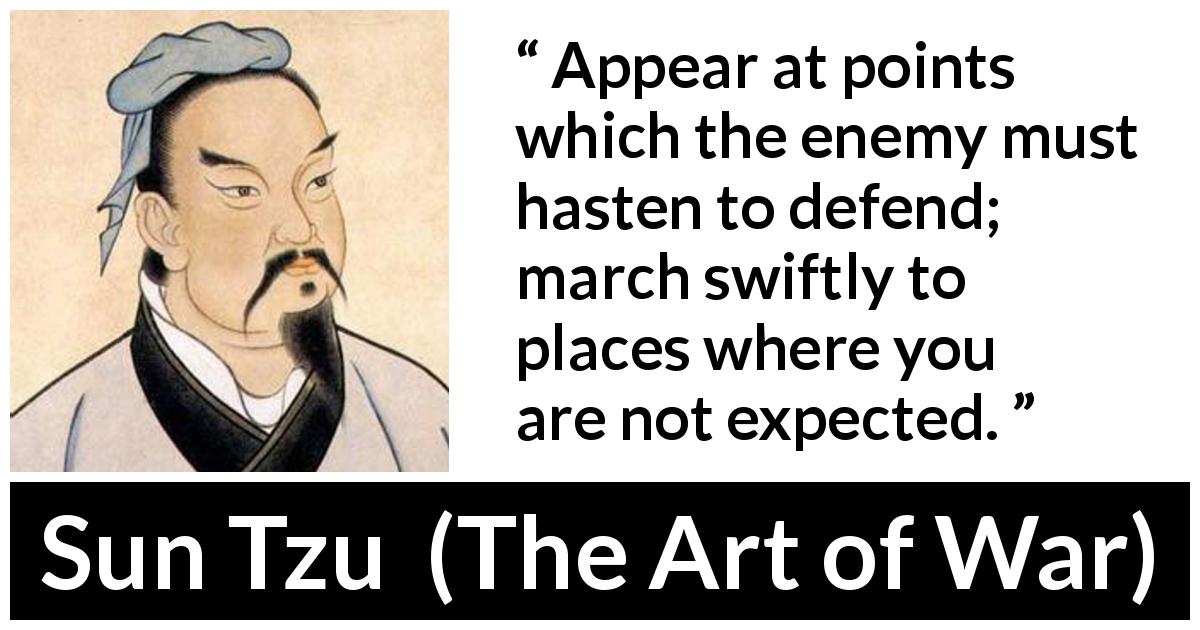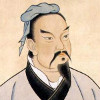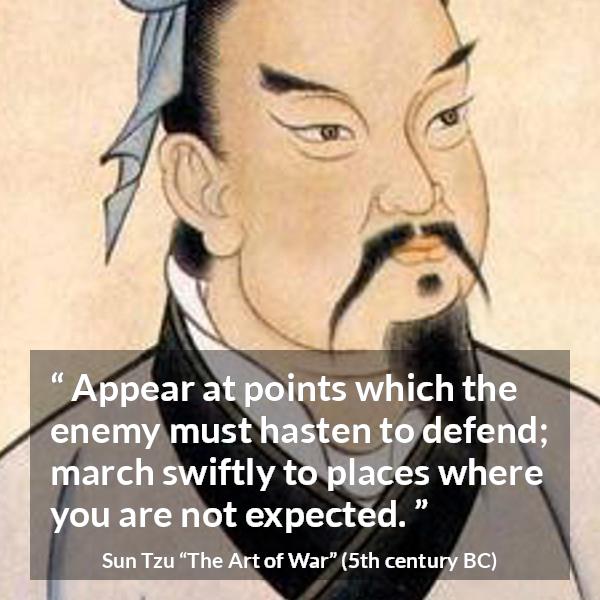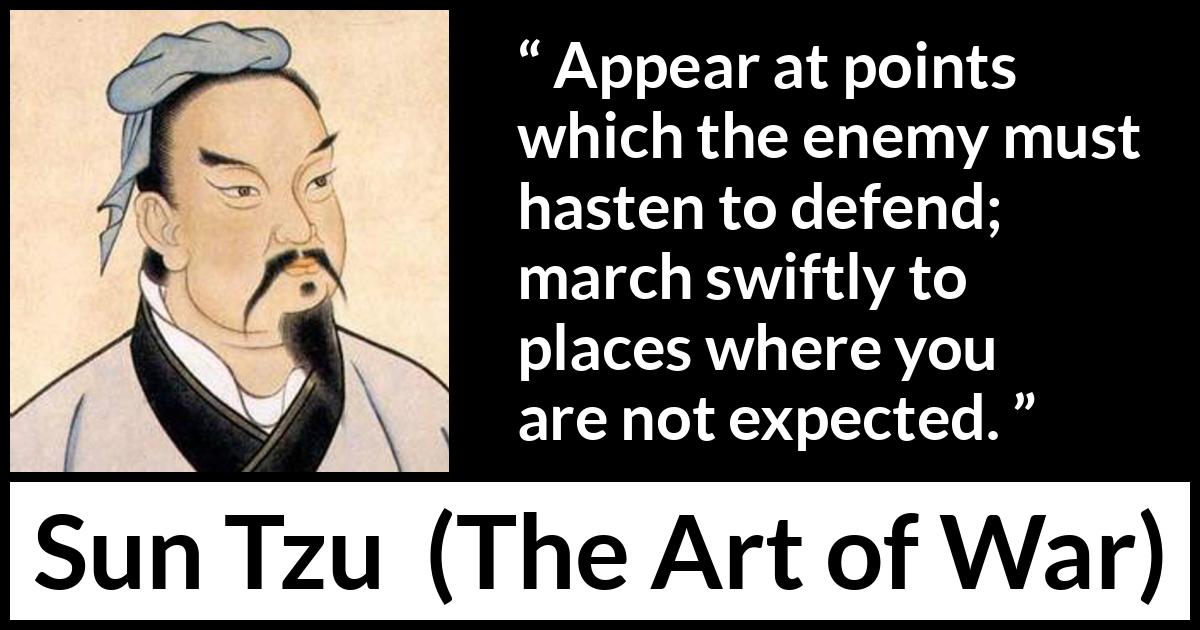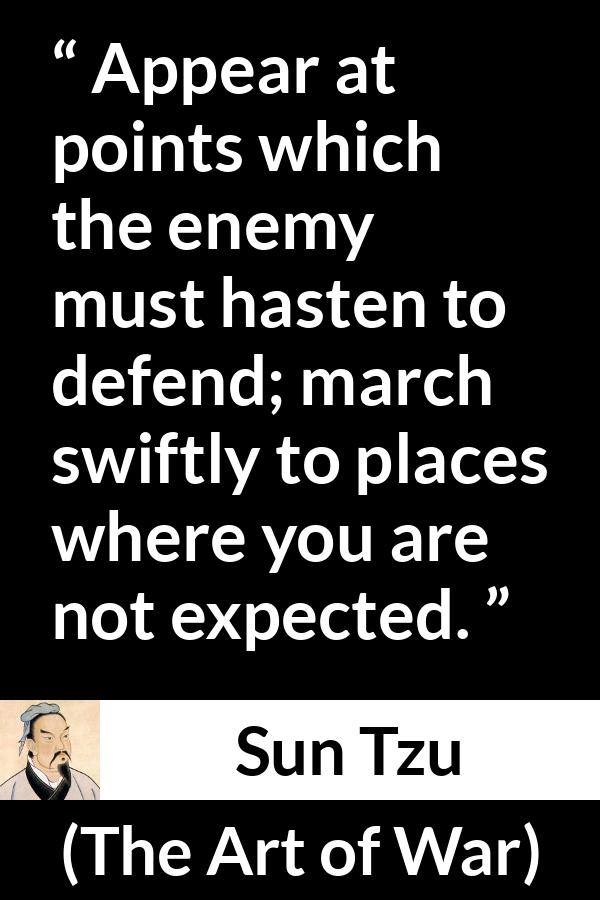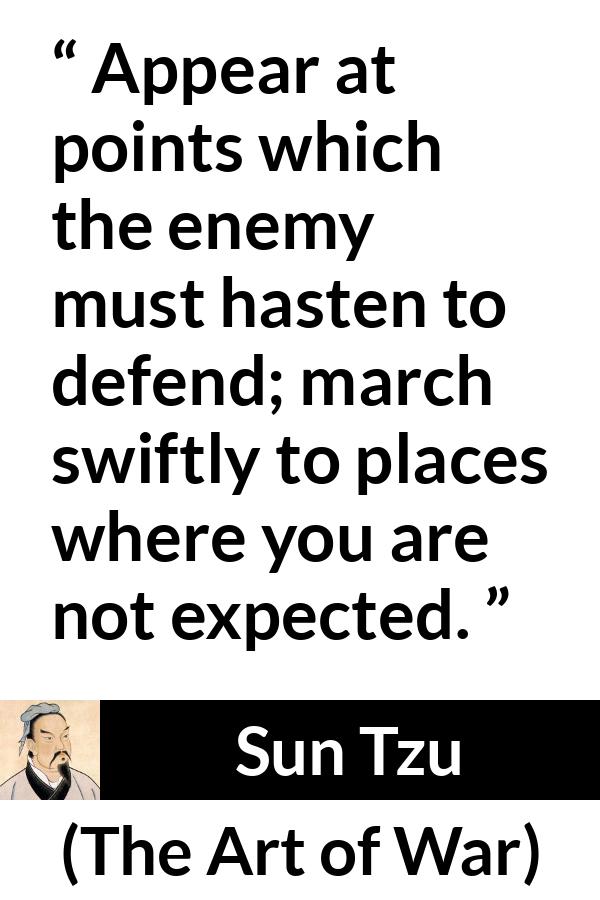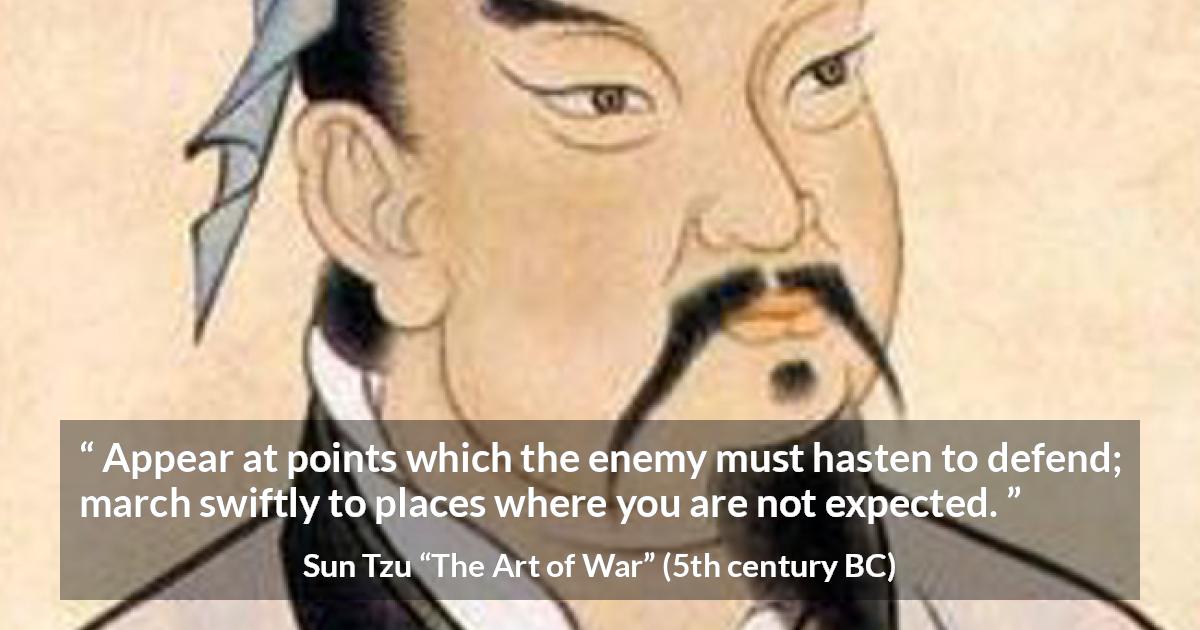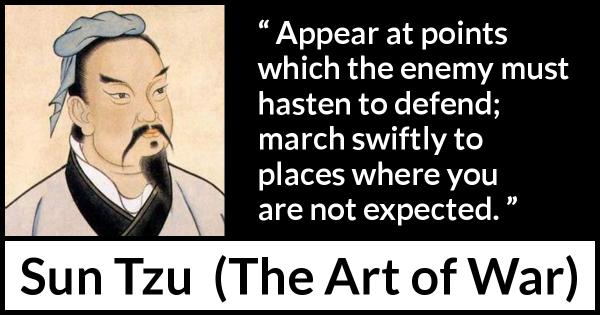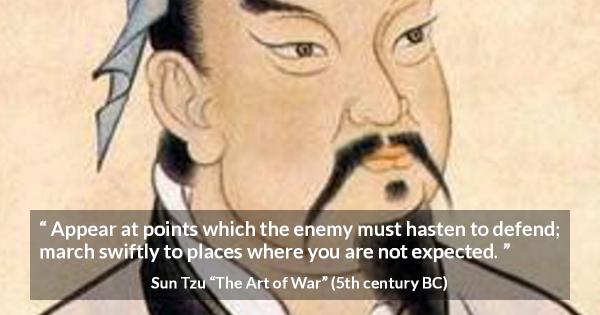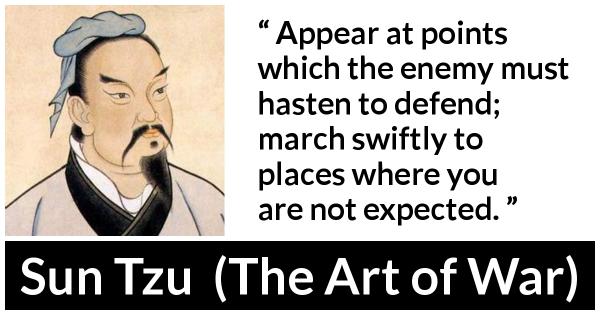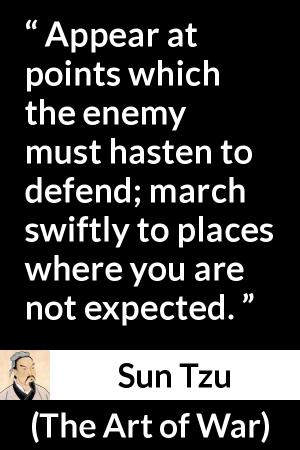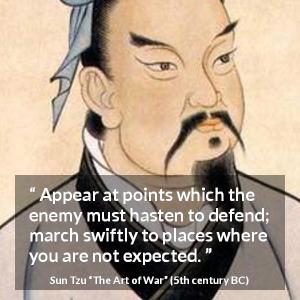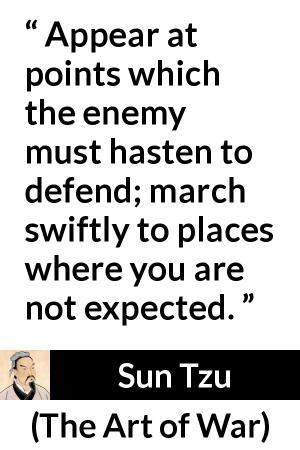“ Appear at points which the enemy must hasten to defend; march swiftly to places where you are not expected. ”
Sun Tzu, The Art of War (5th century BC). copy citation
| Author | Sun Tzu |
|---|---|
| Source | The Art of War |
| Topic | enemies defence marching suprise |
| Date | 5th century BC |
| Language | English |
| Reference | |
| Note | Translated by Lionel Giles |
| Weblink | http://www.gutenberg.org/files/17405/17405-h/17405-h.htm |
Context
“By holding out advantages to him, he can cause the enemy to approach of his own accord; or, by inflicting damage, he can make it impossible for the enemy to draw near.
4. If the enemy is taking his ease, he can harass him; if well supplied with food, he can starve him out; if quietly encamped, he can force him to move.
5. Appear at points which the enemy must hasten to defend; march swiftly to places where you are not expected.
6. An army may march great distances without distress, if it marches through country where the enemy is not.
7. You can be sure of succeeding in your attacks if you only attack places which are undefended.” source
4. If the enemy is taking his ease, he can harass him; if well supplied with food, he can starve him out; if quietly encamped, he can force him to move.
5. Appear at points which the enemy must hasten to defend; march swiftly to places where you are not expected.
6. An army may march great distances without distress, if it marches through country where the enemy is not.
7. You can be sure of succeeding in your attacks if you only attack places which are undefended.” source
